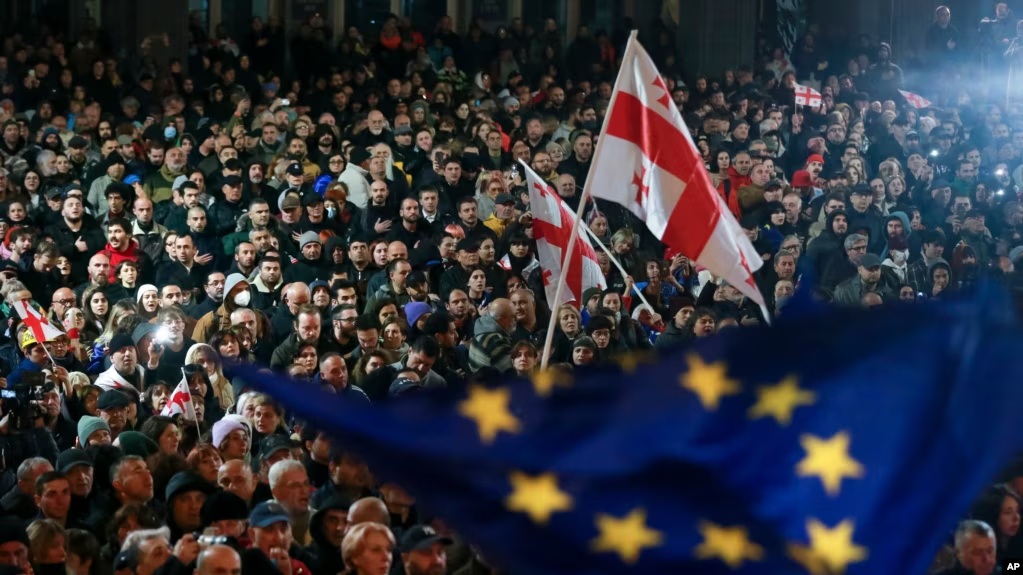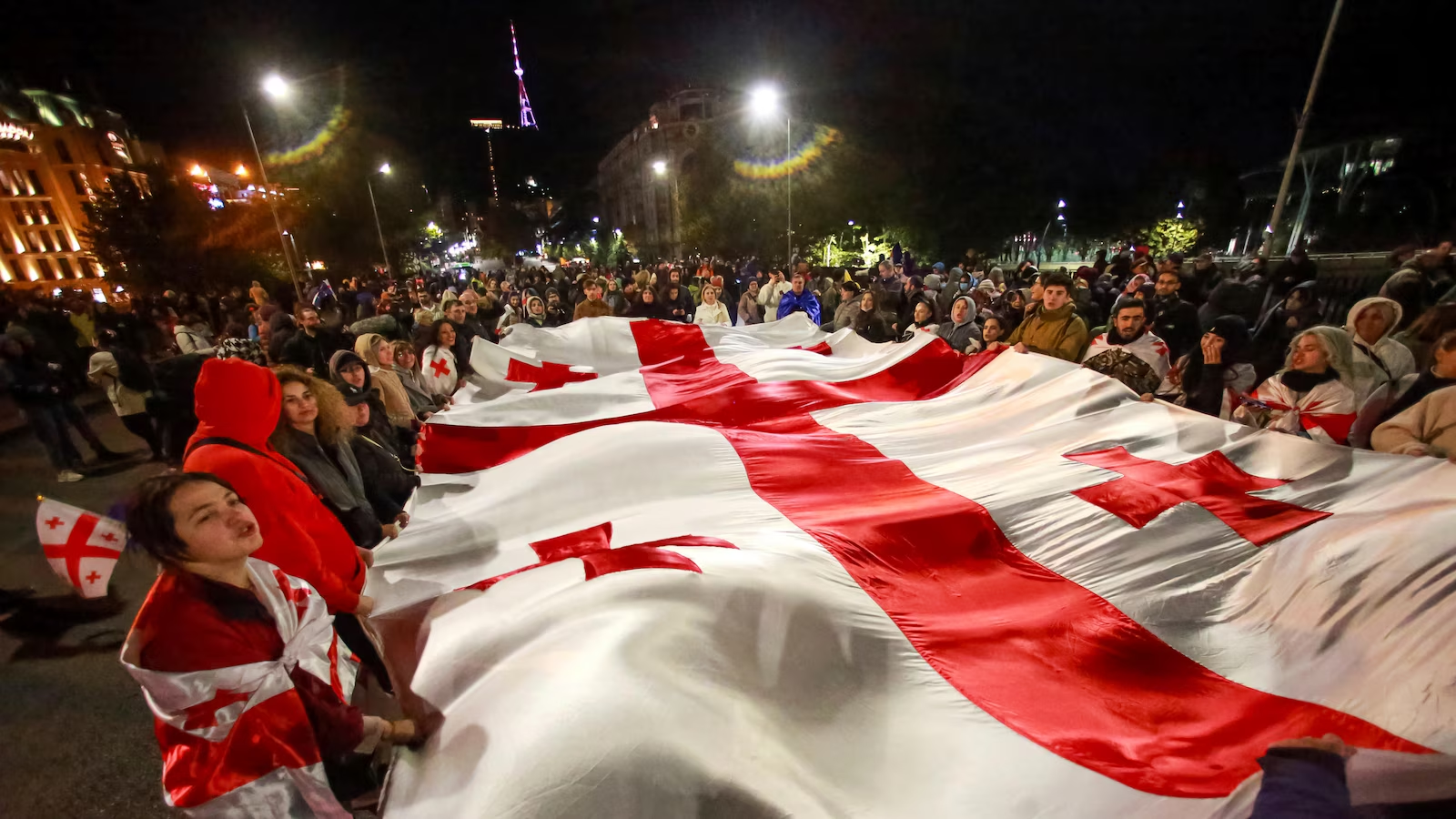Thousands of opposition supporters gathered outside Georgia’s parliament for a second consecutive Monday to protest what they claim was a rigged October 26 election, demanding new internationally supervised polls amid allegations of Russian interference.

Demonstrators waving Georgian and European Union flags faced rows of riot police in a show of mounting political tensions in this South Caucasus nation of 3.7 million. Opposition leaders pledged to boycott parliament and maintain regular protests until their demands for fresh elections and an investigation into voting irregularities are met.
The Central Election Commission declared the ruling Georgian Dream party victorious with approximately 54% of the vote, though opposition groups and President Salome Zourabichvili have rejected these results. Zourabichvili, whose role is largely ceremonial, accused Moscow of pressuring Georgia to prevent its integration with the European Union and has appealed for support from Washington and Brussels.
European election observers reported the vote occurred in a “divisive” environment marked by bribery, double voting, and physical violence, with irregularities particularly prevalent in rural areas. The United States and EU have called for a thorough investigation, while Moscow has denied allegations of interference.
The controversy surrounds Georgian Dream, founded by billionaire Bidzina Ivanishvili, who amassed his wealth in Russia. Critics accuse the party, in power since 2012, of increasingly authoritarian tendencies and pro-Moscow leanings, pointing to recent legislation mirroring Russian laws restricting free speech and LGBTQ+ rights.

Georgia’s EU membership aspirations have suffered setbacks, with Brussels indefinitely suspending the application process following the country’s adoption of a Russian-style “foreign influence law” in June. Many citizens viewed the parliamentary election as a crucial referendum on Georgia’s European integration prospects.
While Georgian Dream maintains its commitment to EU accession, it simultaneously advocates “resetting” relations with Russia, which has maintained military presence in two breakaway Georgian regions since a brief 2008 war.
The government’s response to election fraud allegations has faced immediate skepticism. When prosecutors launched an investigation last week, opposition leaders dismissed it as compromised, noting the prosecutor’s appointment by the Georgian Dream-controlled parliament.
“This election represents a critical moment for Georgia’s democratic future,” said one opposition leader at the protest. “We cannot allow our nation’s sovereignty and European aspirations to be undermined by foreign influence and domestic corruption.”
VOA


